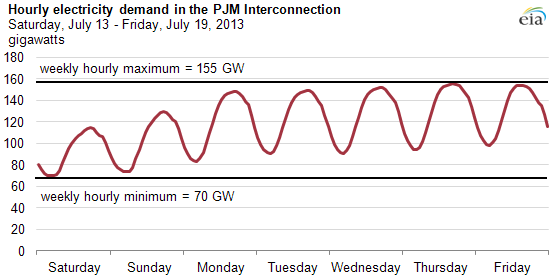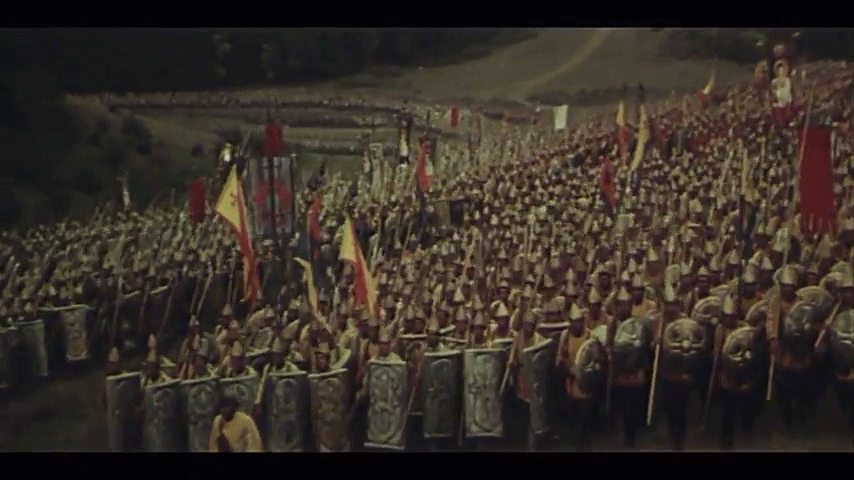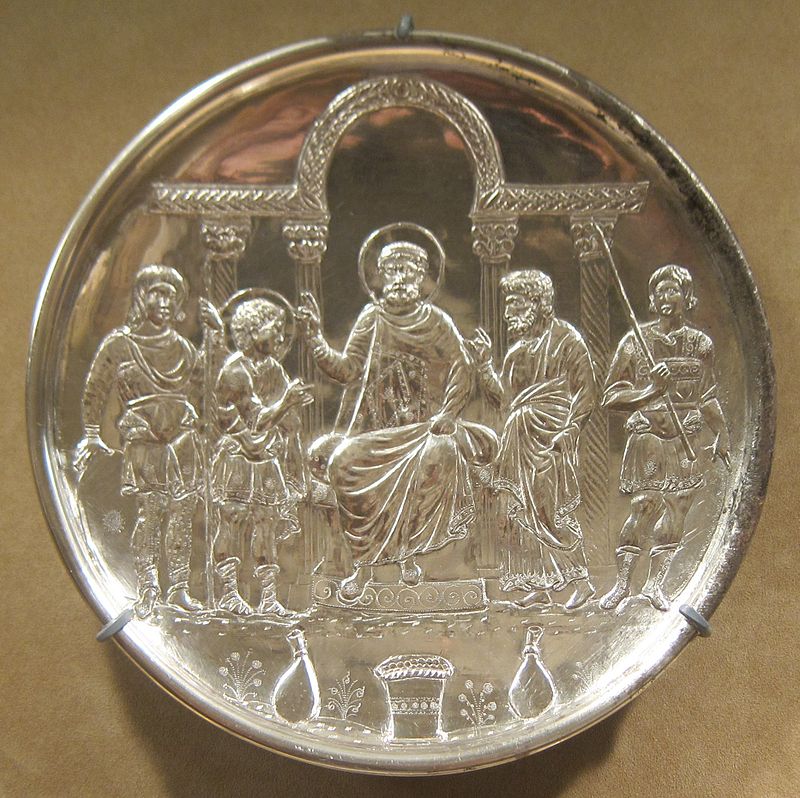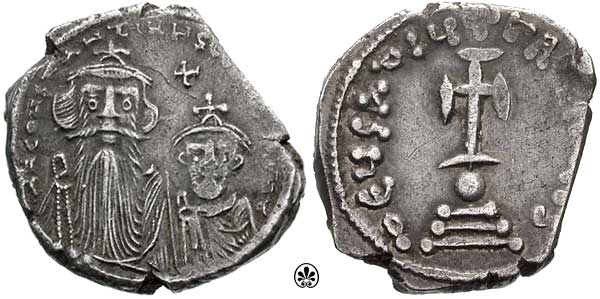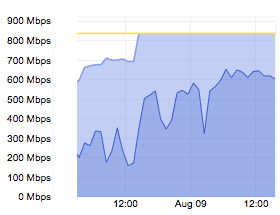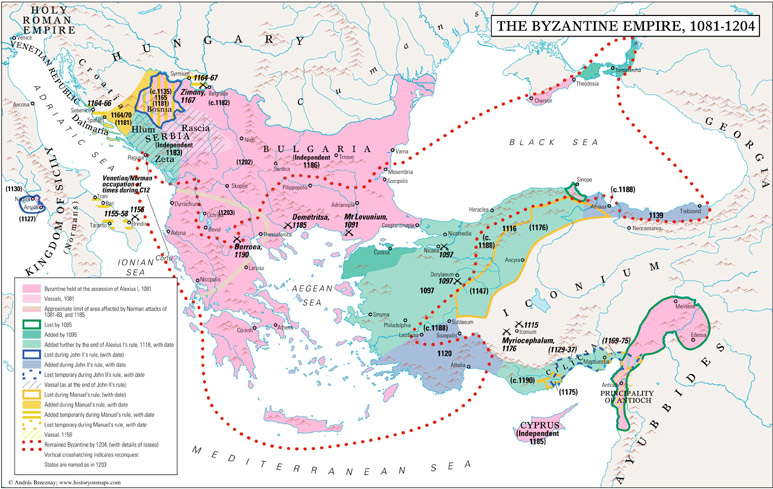Surge Capacity and Survival
Byzantium was able to survive so many crises because its surge capacity: when the borders exploded, it had plenty of buffer to work with.
Similar to any network or complex system.
Byzantium was able to survive so many crises because its surge capacity: when the borders exploded, it had plenty of buffer to work with.
Similar to any network or complex system.
Surge capacity is a basic principle from network theory: the resilience of a system isn’t measured by average capacity, but by ability to deal with a sudden spike without cascading failures.
@ektrit @BzhClair @johnrobb @TheHillpaul @nntaleb can all speak to this in their fields.
@ektrit @BzhClair @johnrobb @TheHillpaul @nntaleb can all speak to this in their fields.
(This is of course the same worry we see with COVID: it isn’t simply the number of infected that matters, but how that affects the medical system’s capacity to treat *all* patients with otherwise-survivable illnesses.)
In Byzantium’s case, it was pretty simple. Usually the empire spent far less on the army & navy than it took in from taxes. This gave it plenty of excess capacity in a crisis.
When raiders thundered in from the steppe, there was plenty of gold left over to mobilize the tagmata.
When raiders thundered in from the steppe, there was plenty of gold left over to mobilize the tagmata.
That gold might be diverted from discretionary spending (maybe you can’t give your favorites new court salaries and silk robes this year), but that did not seriously affect the health of the empire.
The network had plenty of excess capacity.
The network had plenty of excess capacity.
It was a different story when military demands were greater than total revenues. In a real crisis, the empire had to increase its *total capacity*—raising taxes & increasing recruitment.
But this can only go so far without causing long-term damage to the system.
But this can only go so far without causing long-term damage to the system.
Fortunately, the Church added some slack to the system. When the situation got especially dire, emperors would melt down its abundant supply of gold and silver plate to mint new coins, sometimes going so far as to strip the lead from church roofs.
(Clerics invariably grumbled about this, but almost always complied—when the situation was bad enough for emperors to ask, it was pretty obvious to everyone. You only got in trouble when you took the money and lost.)
But church plate only lasts so long. When a crisis stretches on for decades, you face a nasty choice: squeeze so much that peasants abandon the land and merchants stop trading? Or risk military defeat and lose half your territory?
Lack of capacity translates to critical failure.
Lack of capacity translates to critical failure.
And you, as the emperor, have to worry about *your* fate above all else—few emperors were so selfless that they would risk being blinded and having their sons castrated for the long-term health of the empire.
Sometimes a better solution was simply to hold out. Byzantium was far more politically stable than its rivals, so it could often just maintain an adequate defense until its enemies dissolved. This is how it dealt with the Arabs for 3 centuries. https://twitter.com/byzantinemporia/status/1236740282072412161">https://twitter.com/byzantine...
It also allowed the Byzantines to deal with the rise of a powerful Bulgarian state right on their doorstep. https://twitter.com/byzantinemporia/status/1224015350339194880">https://twitter.com/byzantine...
But other times that wasn’t an option. Several emperors faced much tougher predicaments:
-Heraclius during the ~30-year Persian War
-H. and his successors in the first few decades of Arab invasions
-Alexius Comnenus in the post-Manzikert crisis
-Pretty much everyone after 1204
-Heraclius during the ~30-year Persian War
-H. and his successors in the first few decades of Arab invasions
-Alexius Comnenus in the post-Manzikert crisis
-Pretty much everyone after 1204
All those emperors did lasting damage to the empire’s capacity, but that could still be repaired eventually. Byzantium came out of the Arab wars stronger than at the end of Heraclius’ reign; the Comneni almost completely restored the empire to its pre-Manzikert levels.
But this required a sustained period of relative peace. Heraclius did not have that luxury, facing the Arabs right after the Persians. And after 1204, the system was so damaged that just about *everything* an emperor could do only made the situation worse.
https://twitter.com/byzantinemporia/status/1101857762705735680">https://twitter.com/byzantine...
https://twitter.com/byzantinemporia/status/1101857762705735680">https://twitter.com/byzantine...
That’s what makes those last few decades of the 12th century so interesting for Byzantine history. There was a lot they could have done to finish the work of the Comnenian Restoration and prepare for brewing challenges. But they didn’t.
This failure was not inevitable or dictated by circumstance. It was more a lack of will, as if the Comnenian Restoration was good enough, so why bother doing anything more?
And there were many reasons for that lack of will, both large and petty.
And there were many reasons for that lack of will, both large and petty.
But whatever the cause, it meant that when crisis struck again, they were completely unprepared. https://twitter.com/Tweetistorian/status/1246130307549597703">https://twitter.com/Tweetisto...
The lesson from all this: the first few years of a post-crisis boom *must* be used to rebuild capacity. Even when you think the worst is over, unless you actively make yourself more resilient, you are leaving yourself victim to fate.

 Read on Twitter
Read on Twitter